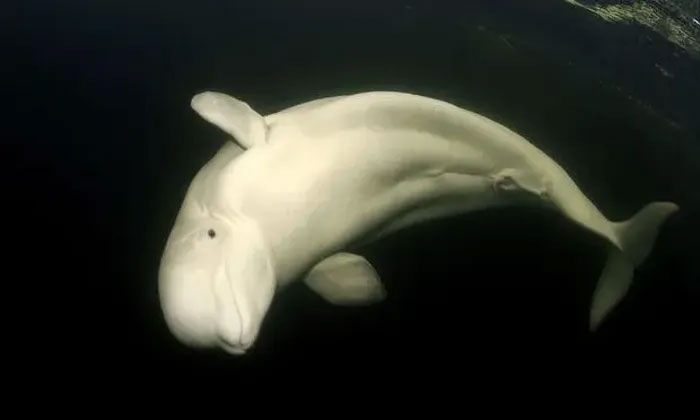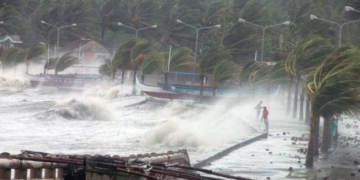According to local officials, a beluga whale swimming upstream in the Seine River near Paris, France, is in poor health and at risk of becoming stranded.
The beluga whale, shown in the image below, is on the list of protected species and was spotted swimming upstream in the Seine before stopping at a dock approximately 70 kilometers northwest of Paris, the Guardian reported on August 5.

Rescue teams are attempting to save a beluga whale in concerning health conditions about 70 kilometers northwest of Paris. (Photo: Alamy).
This beluga whale was first spotted in the Seine River on July 2, just two months after a killer whale, a rare species in the area, was discovered in the same river.
The Eure region authorities in Normandy reported on August 4 that after the beluga whale’s discovery, rescue teams, firefighters, and biodiversity experts were mobilized to monitor its health, which is deemed alarming.
“The whale appears to be underweight and has discolored skin. Its location is between the Poses dam and the Saint-Pierre-la-Garenne area,” local authorities provided information about the beluga whale.
According to Gerard Mauger, Deputy Director of the French Marine Mammal Research Organization, the recently discovered beluga whale spends very little time at the surface and has a large lung capacity. However, Mauger noted that rescuers are struggling to guide the whale back to the mouth of the Seine River.
While local authorities did not disclose the size of the beluga whale spotted in the Seine, an adult beluga can measure up to 4 meters in length.
Lamya Essemlali, head of the conservation organization Sea Shepherd, stated that her team members often use drones at night to locate the whale.
“The environment here is not conducive to the health of the beluga whale. The Seine River is heavily polluted and is a very noisy place. Whales are very sensitive to sound,” Essemlali said.

Rescue workers monitoring the beluga whale with a drone. (Photo: Reuters).
At the end of May, a killer whale died in the Seine, in the area between the cities of Le Havre and Rouen.
This whale was stranded and unable to leave the river despite assistance from rescue teams.
“What is essential now is to ensure that the beluga whale has enough food to avoid a situation similar to that of the killer whale in May,” Essemlali stated.
The Eure authorities indicated that they would monitor and assist the rescue efforts of Sea Shepherd.
Beluga whales typically migrate from the Arctic in the fall for feeding but rarely venture too far south.


















































